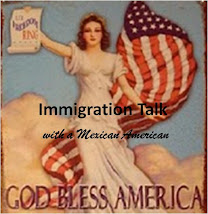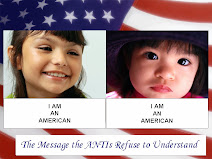 Time for a Good News Story:
Time for a Good News Story:For Japanese and Koreans immigrating to America, containing cultural conflicts has been difficult. Their motherlands are burdened with a long history of conflict stemming from territorial disputes and historical grievances related to Japan's colonization of Korea in the early 20th century.
As Korean residents and shop owners have increased their presence in Little Tokyo, the historic heart of Southern California's Japanese American community, the multicultural melding hasn't always been harmonious.
When the number of Koreans began multiplying in Little Tokyo Towers a few years ago, complaints about them from Japanese residents quickly began to surface. The Japanese immigrants said of the Koreans: "They smell of garlic." "They don't follow the rules." "They're going to take over." Then, from the Koreans: "The Japanese are snooty." "They don't greet you in the elevator." "They disdain Korean culture." "They're trying to push us out."
Today, however, the tone in the towers -- a 300-unit senior housing facility on 3rd Street -- is strikingly different. A Korean resident whose relatives were jailed for protesting Japan's colonization of his motherland is teaching his native language to a dozen of his Japanese neighbors. "Ga, gya, go, gyo," they intently repeated on a recent night, mimicking the sounds of the Korean alphabet as teacher Simon Yoon pointed them out on a whiteboard. Residents recently held a New Year's party and debuted a Korean-Japanese bilingual newsletter called "Bridges" to share their cultures. On other nights, they belt out songs in both languages using a karaoke machine purchased by Korean residents -- who took care to include 2,500 Japanese songs. And in August, they attended a groundbreaking "harmony concert" featuring Japanese and Korean music and dance.
The turnabout in Little Tokyo proves ethnic harmony is possible, the residents say. "We want to show that in Little Tokyo, there are people who want to be good neighbors to each other regardless of the past and all of the conflicts we've experienced. If reconciliation can happen in Little Tokyo, then it could be a model for the city and for Japan and South Korea."
Reference:








4 comments:
This isn't just about two different immigrant groups; the issue is mainly one of cultural identification. Most of the Japanese Americans in this country are old generations of immigrants, the bulk of this population being 3rd, 4th and 5th generation Americans of Japanese descent. Their cultural identifiers are of being Japanese American, not Japanese, identity and many Japanese Americans as well as Chinese Americans in these generational groups strongly identify with being Asian American.
Most Korean immigrants are first and second generation, many of them have immigrated here with their parents. As their children go through the socialization process in school with other Asian Americans, their identification tends to also center as Asian Americans. Those who identify with their country of national origin tend to identify only as Koreans, or in other cases, Chinese, Cambodians, etc. depending on if they are recent immigrants or immigrants that have socialized as Americans.
The groups that have been here the longest, that being multiple generations of Americans with a history with this country, are the Chinese and Japanese Americans. There are very few Japanese who are recent immigrants, so culturally there is can appear ridiculous when Korean immigrants hold hatreds developed from their mother country against Asian Americans here, most of whom weren't even born during the time of war conflict. Being the LA Times, I was surprised that they didn't delve more into these aspects.
Very insightful comments Chica. You are right. They probably could have delved deeper, but I think their focus was on the "good news" story that the new immigrants are joining in on these Unity conferences and bonding with the Asian Americans that created "Little Tokyo."
The pictures with the article were great!
'
One of the things I love about LA is the diversity of the Asian American subculture there. Many of these older generations of APA's (Asian Pacific Americans) have been key to getting culturally appropriate health services issues addressed. Case in point: certain Asian subcultures will never really complain of pain even if they are ready to drop dead from it, so knowing this when assessing a patient for intake is very important.
In grad school I did quite a bit of research into the major non-black minority groups in terms of experience, cultural identity and external influences over a fairly long period of time, usually at least in the late 1800's. The truth of the matter is that growing up not white in the USA within a certain generational experience and time related parameters has provided Latinos, Native Americans and Asian Americans with pretty much the same experiences when we look at inclusion and acceptance (and how this has messed with our heads). Not ironically, most of the laws enacted against the Chinese workers in the 1800's and the turn of the 1900's were used against Mexicans, and similiar legallized racism was used against other groups and visa versa. It's all fascinating to me, and the fact that Obama was elected is testament to how far this country has come from the early 1920's.
Tamale,
You may want to study more about the history of Asian American. Korean American history began immigrating to Hawaii and the mainland as early as the 1900's. Many Koreans immigrated at the same time as the Japanese and Chinese Americans as workers. We Koreans are not all "immigrants." Many Koreans here are Korean Americans...how do I know...my great grandparents came to America in 1900's.
Also this "hatred" you talk of...well if you talk to many Japanese/Americans, you might find that many of them do not like or associate with Korean/Americans and they in general have a bias against Koreans..it's a bias that is passed on from one generation to the next...Just a reminder...it's never one way...Get tired of hearing all the negativity towards Koreans and immigrants.
Post a Comment